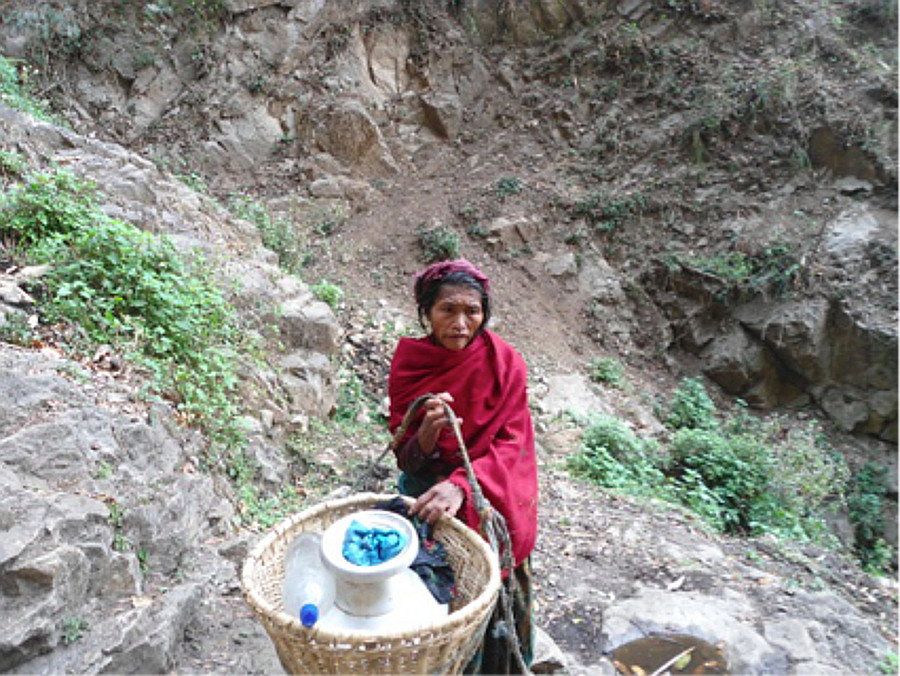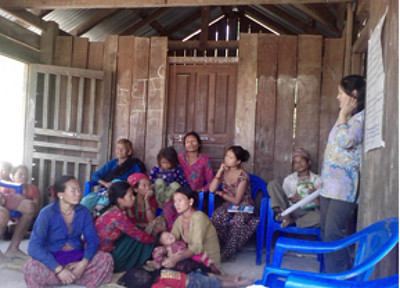We are Responsible for Protecting Nature
By: Katie Douglas, WEA Intern
“We Indigenous peoples of this village never thought that protecting natural resources was our responsibility. Now, we know we are responsible for protecting nature.”
These are the powerful words of Sani Maya Bote, a farmer and mother from Manahari Village in Kathmandu, Nepal. As a child, Sani remembers the great prosperity of her community, who derived their success from the plentiful resources of local land, forests, jungle, and rivers. By the age of 17 Sani was married, and by 38 was caring for a 7-person household. Sani’s ability to provide for her family deteriorated as the local forests and rivers were seized and designated as national parks and protected areas, essentially eliminating the traditional food-ways of Sani’s Indigenous peoples. Additional stressors of climate change and development have wiped out much of the traditional biodiversity in the area, and Sani’s community now faces severe economic and food insecurity. When Sani heard of IWL Nepal training women to heighten their awareness of local biodiversity, climate change, and issues of food security, she jumped at the chance to have a say in her community’s future sustainability.

Sani Maya Bote. Photo: IWL-Nepal
The National Indigenous Women’s Federation (NIWF)’s Indigenous Women’s League of Nepal (IWL – Nepal) formed a partnership with WEA in the interest addressing the issues of land, resource, and indigenous rights, and gender injustice in Nepal, especially as they are exacerbated by the effects of climate change. Through advocacy trainings, IWL – Nepal provided indigenous women with the resources to utilize their traditional skills and protect the future of their land.
Large-scale resource extraction by the Nepalese government and multi-national corporations has severely threatened the forests and rivers of indigenous communities. Although deforestation has slowed since the 1990’s boom, forestry contributes to 15% of the country’s total GDP. Such deforestation has translated to an infertility of the soil, loss of endemic biodiversity, and a disproportionate effect on the livelihoods of women. Women depend heavily upon these natural resources for survival, and as resources become scarce they must walk farther and farther to collect fodder and fuel. There is little profit from such foraging, and in many markets a backload of wood is barely the equivalent of two days wages.

Training program for Bankariya women at Hadikhola Village Development Committee. Photo: IWL-Nepal
In order to change this reality, IWL – Nepal’s work focuses on capacity building efforts. This means providing Indigenous women with opportunities to learn about climate adaptation and mitigation, and how to handle the discriminatory laws related natural resources that affect them so deeply. These trainings promote the traditional skills and knowledge these women already posses and offer them a space for discussion in the interest of advocating for their issues with local governmental authorities, political leaders and other Indigenous women to raise awareness of their concerns around land and biodiversity management.
Through IWL – Nepal, Sani began growing her leadership skills, and learned how to make compost for sale at the local markets. Now a master composter, today she teaches her techniques to other Indigenous women, which allows them benefit from the additional income. Sani would like to one day purchase land to plant wild fruit and an organic vegetable garden, and fully intends to continue educating herself around the environmental issues her community is facing. It is through women leaders like Sani that IWL-Nepal and WEA see the hope for the indigenous communities of Nepal to develop sustainable solutions in the face of climate change.
